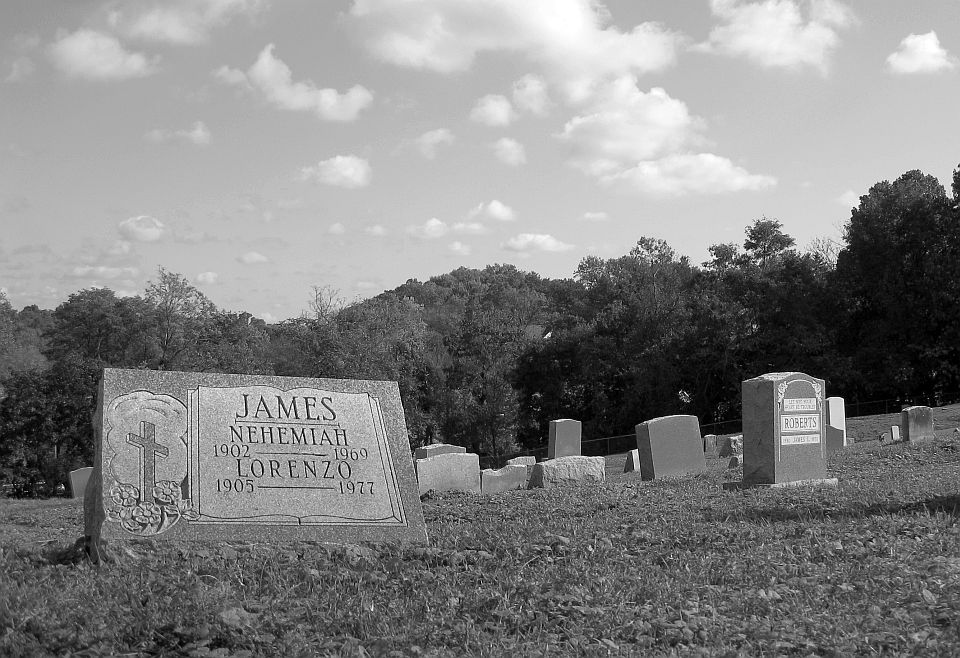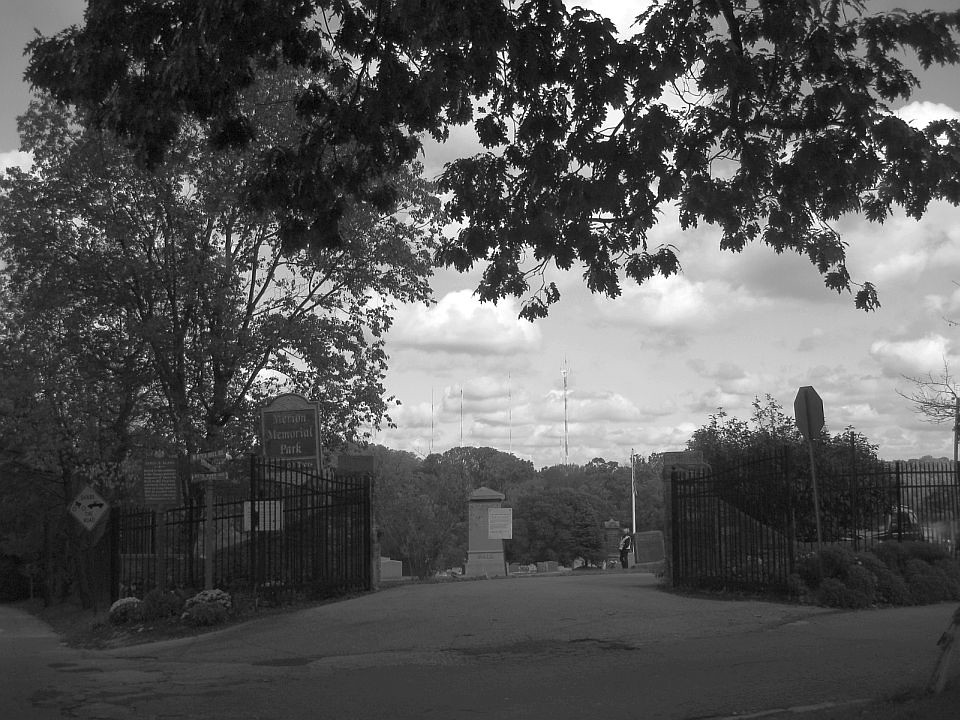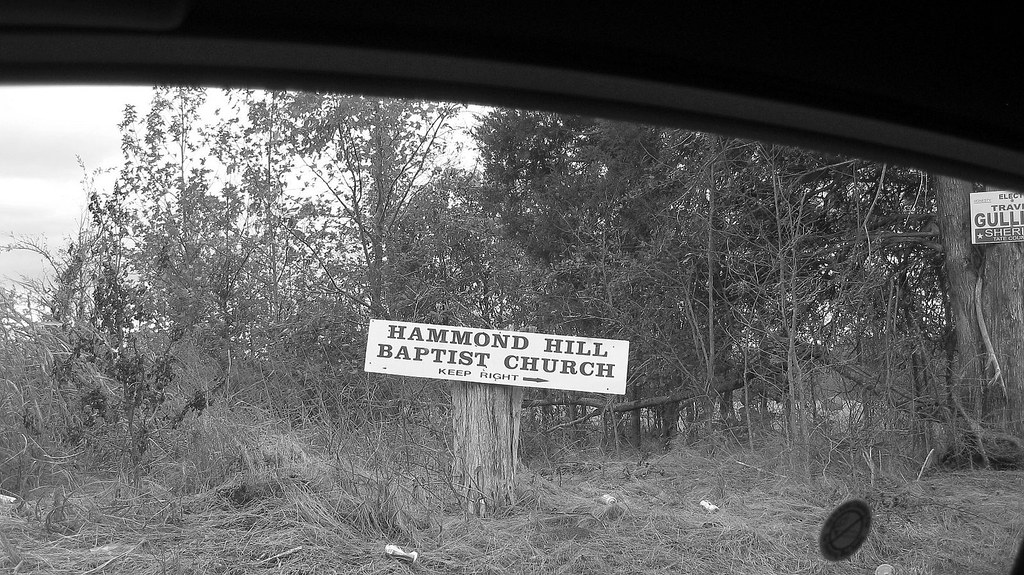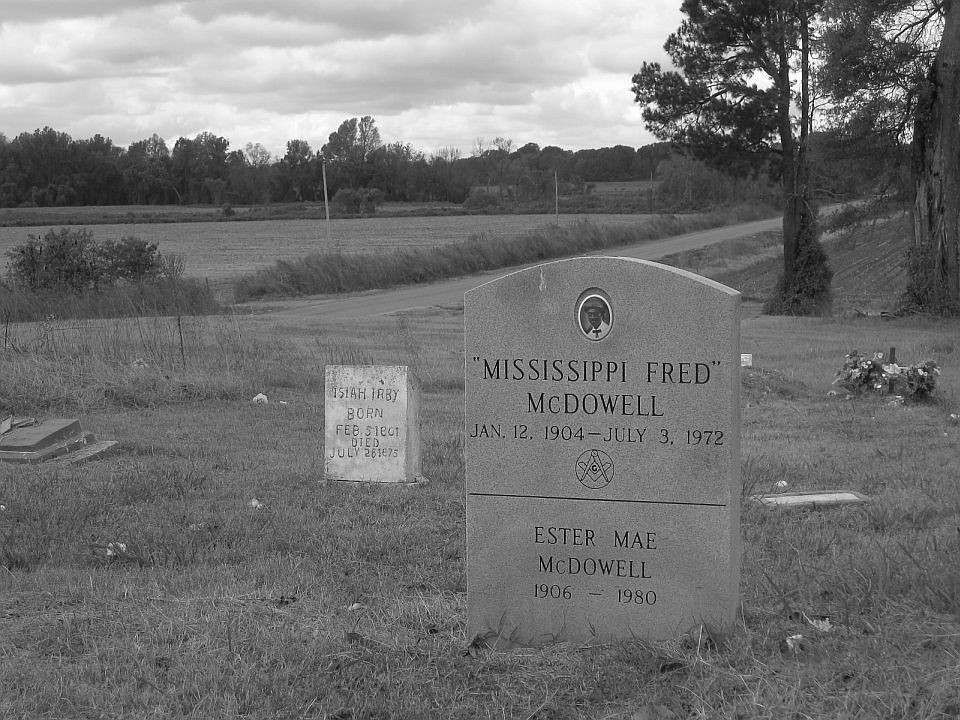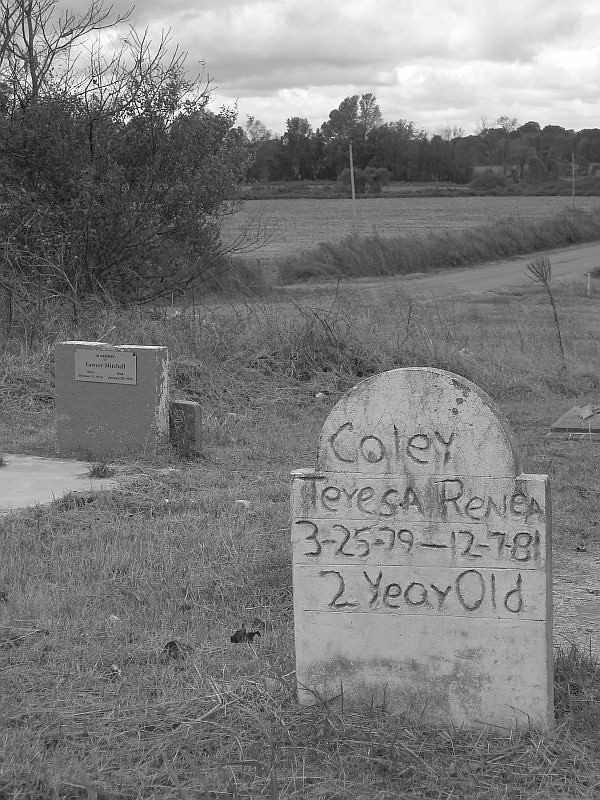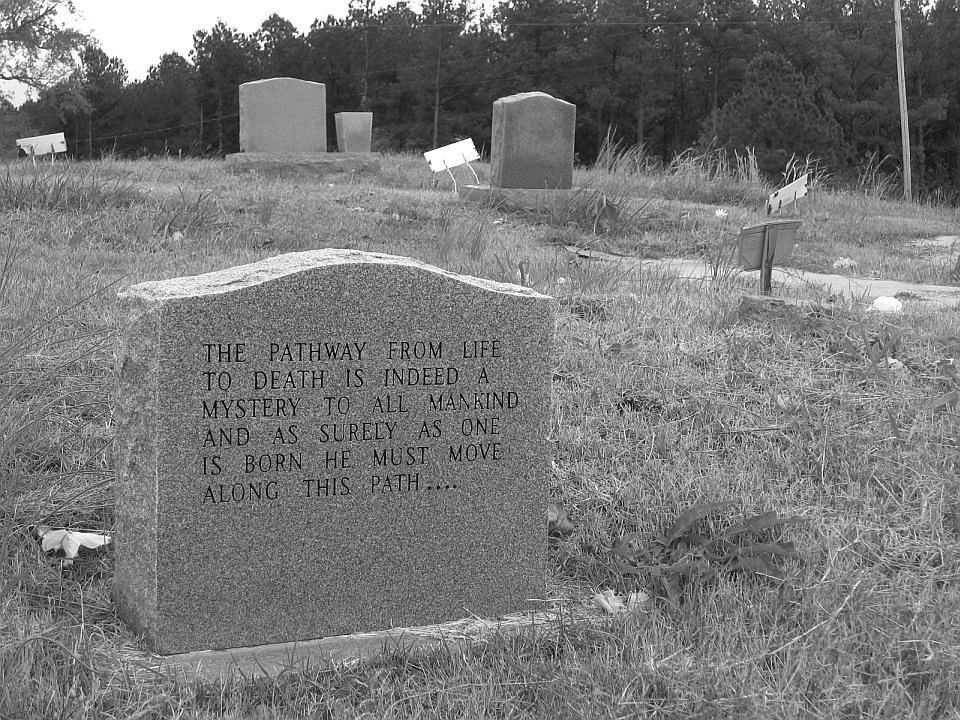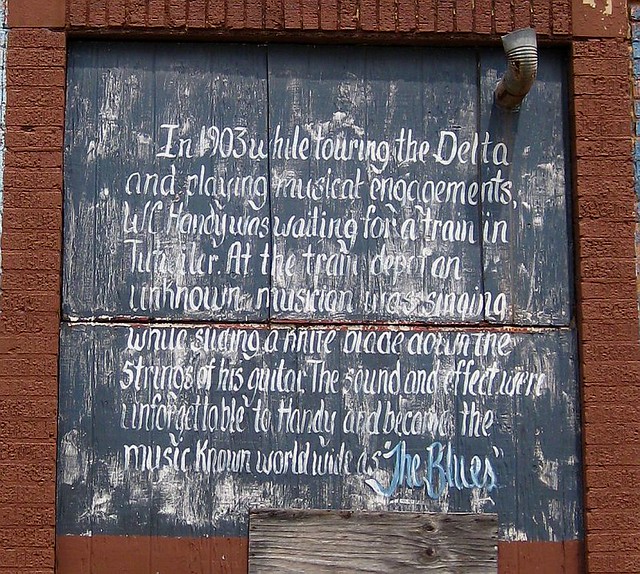Jack White's been busy being brilliant again. Actually, though, that's a misnomer, as the man seems to never stop being brilliant. If you haven't been paying attention, it'd be easy to think he's not done anything since the end of last year's Dead Weather tour or this year's handful of shows with the Raconteurs but, in actuality, he's turned out a tremendous amount of music and records over the course of this year. It just hasn't all been the sort to put him in the spotlight.
As far as newness in his own music goes, 2011 was a year of collaborations. First released was the spaghetti western-inspired Rome, a five-year-in-the-making labor of love by Danger Mouse and Daniele Luppi, on which Jack contributed lyrics and vocals to three songs. The lyrics are not a huge a stretch from what a dedicated White Stripes fans might be familiar with, but his vocals and the music they're paired with are quite a departure.
Next was the long-awaited release of The Lost Notebooks of Hank Williams, a project begun by Bob Dylan roughly a decade ago. In a turnaround from Rome, the musicians involved in this project were asked to write music for unfinished Williams lyrics and then perform on the album. I've not yet listened to the entire record, but from what I have heard it doesn't seem that any of the other artists involved created anything as authentic as Jack did.
Most recent was a startling cover of U2's Love Is Blindness on the AHK-toong BAY-bi covers compilation, which I babbled about a couple months ago, but will post here again for the sake of comparison.
I'm struck every time I listen to these songs by the contrast between the delivery of them-- Not so much in the difference in style, but in how Jack chose to approach them. In You Know That I Know, the "quiver and twang" in his voice and the distinctive pedal steel guitar in the music he wrote are a touchingly faithful recreation of Hank's style. He's done this sort of thing before, notably with the White Stripes' covers of Blind Willie McTell's Your Southern Can Is Mine and Lord Send Me An Angel, and Bob Dylan's One More Cup of Coffee and Isis, but not to quite this fine a degree. In comparison, he took Love Is Blindness and ran miles away from U2's original to create something so much more extreme and intense, which, again, he also did with the Stripes on Dolly Parton's Jolene, Son House's Death Letter, and Robert Johnson's Stop Breaking Down (though he and Meg also did a slightly more faithful rendition of that one, as well). And there's pretty much no way to compare the songs on Rome to anything he's done before. When news leaks of things like this year's cover tunes and collaborations, the most exciting part of waiting to hear them is that there's just no telling what direction Jack will have taken. It's fascinating to contemplate-- How does he make the decision each time? Is it pure gut instinct based on a visceral reaction to the music? Or does he actually thoughtfully consider the song and make conscious decisions? He spoke in a recent interview (that I now can't find) about problem-solving in relation to the business at his label, Third Man Records, of how he prefers to vary his own style from problem to problem rather than tackling every challenge that comes up from the same perspective, and that seems to also speak directly to how he approaches music.
This same diversified approach is reflected in the output of the Blue and Green Series singles from Third Man, on which Jack steps into the background as producer. This is where he's really been busy. What's notable about these records aside from his astute production is that he personally searches out and contacts individuals with whom he feels he can create something new and inspiring. With 33 releases in less than three years, these two series run a gamut that defines the word "eclectic"-- From relative unknowns like JEFF the Brotherhood, the Secret Sisters, and Chris Thiles, to actor John C. Reilly and 70's icon BP Fallon, Conan O'Brien and auctioneer Jerry King, Japanese girl group the 5.6.7.8.s and rapper Black Milk, to Carl Sagan and, controversially, Insane Clown Posse, the catalog of these two series is a blatant indication of just how wide-ranging Jack's interests and imagination run.
The most recent of the Green Series singles has totally blown me away. It features poet/actor/playwright, Edgar Oliver, whom Jack apparently noticed in an episode of the Discovery Channel's Oddities program. For his Third Man single, Oliver wrote and read a pair of poems-- In The Park and Hunger and Light. While his voice, delivery, and poetry are certainly not necessarily everyone's cup of tea, they're right up my own eerie little alley. A clip of the a-side, In The Park, can be heard at the Third Man Records on-line shop. It's a gruesome yet lovely contemplation on the approach of death, read in a manner that summons up a delightfully daft combination of Vincent Price and Peter Lorre. But the b-side, Hunger And Light, is the kicker.
Recorded in Triple Reverse Cryptophonica™, it left me initially nonplussed at what sounded like nothing but gibberish. I thought it would be great to listen to at Halloween, but it had no meaning for me beyond that.
But then Third Man announced a contest promising a gold record of the single to the first person who could correctly interpret and transcribe the poem. I had no clue of how to accomplish this, but there were plenty of other technologically-inclined audiophiles who took up the challenge. When the results hit the internet, it left me giddy. Whether Oliver's dark themes and creepy tone are appealing or not, the production of this piece is still a wonderment. First, the single was pressed to physically play in reverse, from the inside run-out groove to the outer edge of the record (which produces the sounds heard above). But by flipping the head of the turntable tonearm, it can be played in the normal direction of outer-to-inner edge, which creates the second reverse-- the direction of the sound. But instead of hearing "Paul is dead" or some Satan-worshipping mumbo-jumbo like you'd hear if you played your records in reverse in the old days, you get this--
The final fantastic element is that Jack recorded Edgar reading the words in reverse order (as heard above). Reversing things for a third and last time through transcription reveals the original poem—
”Hunger and Light. I’m going in my sleep to the Galaxy Deli for a bacon and egg sandwich. I must cross daylight to get it. I went to the Galaxy Deli in my sleep. I crossed the Egyptian daylight on 3rd Avenue, fearing death at every step, but exalting in the sun on the mud in the street. This was not dreaming. I really crossed that Styx, and came back with two bacon and egg sandwiches, both for me and some for my cats, who are driven mad by the smell, as am I, of bacon and sunlight. The day, like a beautifully fried egg, sits coolly on a blue plate. Today is a blue plate special. I’ll go swimming around the rim and drown in my hunger. Sun sets a gold eye on a fly, hungry for everything glinting in the mud. It’s today in my dream. Cruelly today. Today I will eat the last bite.”
Now that I'm able to comprehend it, I find it beautiful in every direction. What leaves me most excited about it, though, is wondering how on earth Jack came up with the Triple Reverse idea. How many people's minds work like that? It's obvious that his brain is on a different plane than those of average individuals. I've joked at one of the message boards dedicated to him that if you opened up his head, instead of a mass of grey matter like the rest of us have, you'd find a gyroscope spinning at breakneck speed, spitting out ideas like lightning. Though the lightning image makes it more appropriate, probably, to compare Jack's brain to a Tesla coil like the one displayed on the roof of Third Man Records, or the one he showed off in Jim Jarmusch's Coffee And Cigarettes--
Clearly, the spark gaps of the Tesla coil inside Jack's head have always been adjusted for overdrive performance and that's something for which we should all be thankful. The music world would be a damned dull place without him in it.
Note: Bearing in mind how he seems to feel about his tangible creations being turned into internet ephemera, I debated for several days whether to post the videos and translation of Hunger And Light. In the end, I decided it was worth risking Jack's displeasure in order to demonstrate to the few people who read this just how insanely creative he is. If anyone affiliated with Third Man Records should happen to stumble across this and feel that it should be removed, by all means please let me know.
As far as newness in his own music goes, 2011 was a year of collaborations. First released was the spaghetti western-inspired Rome, a five-year-in-the-making labor of love by Danger Mouse and Daniele Luppi, on which Jack contributed lyrics and vocals to three songs. The lyrics are not a huge a stretch from what a dedicated White Stripes fans might be familiar with, but his vocals and the music they're paired with are quite a departure.
Next was the long-awaited release of The Lost Notebooks of Hank Williams, a project begun by Bob Dylan roughly a decade ago. In a turnaround from Rome, the musicians involved in this project were asked to write music for unfinished Williams lyrics and then perform on the album. I've not yet listened to the entire record, but from what I have heard it doesn't seem that any of the other artists involved created anything as authentic as Jack did.
Most recent was a startling cover of U2's Love Is Blindness on the AHK-toong BAY-bi covers compilation, which I babbled about a couple months ago, but will post here again for the sake of comparison.
I'm struck every time I listen to these songs by the contrast between the delivery of them-- Not so much in the difference in style, but in how Jack chose to approach them. In You Know That I Know, the "quiver and twang" in his voice and the distinctive pedal steel guitar in the music he wrote are a touchingly faithful recreation of Hank's style. He's done this sort of thing before, notably with the White Stripes' covers of Blind Willie McTell's Your Southern Can Is Mine and Lord Send Me An Angel, and Bob Dylan's One More Cup of Coffee and Isis, but not to quite this fine a degree. In comparison, he took Love Is Blindness and ran miles away from U2's original to create something so much more extreme and intense, which, again, he also did with the Stripes on Dolly Parton's Jolene, Son House's Death Letter, and Robert Johnson's Stop Breaking Down (though he and Meg also did a slightly more faithful rendition of that one, as well). And there's pretty much no way to compare the songs on Rome to anything he's done before. When news leaks of things like this year's cover tunes and collaborations, the most exciting part of waiting to hear them is that there's just no telling what direction Jack will have taken. It's fascinating to contemplate-- How does he make the decision each time? Is it pure gut instinct based on a visceral reaction to the music? Or does he actually thoughtfully consider the song and make conscious decisions? He spoke in a recent interview (that I now can't find) about problem-solving in relation to the business at his label, Third Man Records, of how he prefers to vary his own style from problem to problem rather than tackling every challenge that comes up from the same perspective, and that seems to also speak directly to how he approaches music.
This same diversified approach is reflected in the output of the Blue and Green Series singles from Third Man, on which Jack steps into the background as producer. This is where he's really been busy. What's notable about these records aside from his astute production is that he personally searches out and contacts individuals with whom he feels he can create something new and inspiring. With 33 releases in less than three years, these two series run a gamut that defines the word "eclectic"-- From relative unknowns like JEFF the Brotherhood, the Secret Sisters, and Chris Thiles, to actor John C. Reilly and 70's icon BP Fallon, Conan O'Brien and auctioneer Jerry King, Japanese girl group the 5.6.7.8.s and rapper Black Milk, to Carl Sagan and, controversially, Insane Clown Posse, the catalog of these two series is a blatant indication of just how wide-ranging Jack's interests and imagination run.
The most recent of the Green Series singles has totally blown me away. It features poet/actor/playwright, Edgar Oliver, whom Jack apparently noticed in an episode of the Discovery Channel's Oddities program. For his Third Man single, Oliver wrote and read a pair of poems-- In The Park and Hunger and Light. While his voice, delivery, and poetry are certainly not necessarily everyone's cup of tea, they're right up my own eerie little alley. A clip of the a-side, In The Park, can be heard at the Third Man Records on-line shop. It's a gruesome yet lovely contemplation on the approach of death, read in a manner that summons up a delightfully daft combination of Vincent Price and Peter Lorre. But the b-side, Hunger And Light, is the kicker.
Recorded in Triple Reverse Cryptophonica™, it left me initially nonplussed at what sounded like nothing but gibberish. I thought it would be great to listen to at Halloween, but it had no meaning for me beyond that.
But then Third Man announced a contest promising a gold record of the single to the first person who could correctly interpret and transcribe the poem. I had no clue of how to accomplish this, but there were plenty of other technologically-inclined audiophiles who took up the challenge. When the results hit the internet, it left me giddy. Whether Oliver's dark themes and creepy tone are appealing or not, the production of this piece is still a wonderment. First, the single was pressed to physically play in reverse, from the inside run-out groove to the outer edge of the record (which produces the sounds heard above). But by flipping the head of the turntable tonearm, it can be played in the normal direction of outer-to-inner edge, which creates the second reverse-- the direction of the sound. But instead of hearing "Paul is dead" or some Satan-worshipping mumbo-jumbo like you'd hear if you played your records in reverse in the old days, you get this--
The final fantastic element is that Jack recorded Edgar reading the words in reverse order (as heard above). Reversing things for a third and last time through transcription reveals the original poem—
”Hunger and Light. I’m going in my sleep to the Galaxy Deli for a bacon and egg sandwich. I must cross daylight to get it. I went to the Galaxy Deli in my sleep. I crossed the Egyptian daylight on 3rd Avenue, fearing death at every step, but exalting in the sun on the mud in the street. This was not dreaming. I really crossed that Styx, and came back with two bacon and egg sandwiches, both for me and some for my cats, who are driven mad by the smell, as am I, of bacon and sunlight. The day, like a beautifully fried egg, sits coolly on a blue plate. Today is a blue plate special. I’ll go swimming around the rim and drown in my hunger. Sun sets a gold eye on a fly, hungry for everything glinting in the mud. It’s today in my dream. Cruelly today. Today I will eat the last bite.”
Now that I'm able to comprehend it, I find it beautiful in every direction. What leaves me most excited about it, though, is wondering how on earth Jack came up with the Triple Reverse idea. How many people's minds work like that? It's obvious that his brain is on a different plane than those of average individuals. I've joked at one of the message boards dedicated to him that if you opened up his head, instead of a mass of grey matter like the rest of us have, you'd find a gyroscope spinning at breakneck speed, spitting out ideas like lightning. Though the lightning image makes it more appropriate, probably, to compare Jack's brain to a Tesla coil like the one displayed on the roof of Third Man Records, or the one he showed off in Jim Jarmusch's Coffee And Cigarettes--
Clearly, the spark gaps of the Tesla coil inside Jack's head have always been adjusted for overdrive performance and that's something for which we should all be thankful. The music world would be a damned dull place without him in it.
Note: Bearing in mind how he seems to feel about his tangible creations being turned into internet ephemera, I debated for several days whether to post the videos and translation of Hunger And Light. In the end, I decided it was worth risking Jack's displeasure in order to demonstrate to the few people who read this just how insanely creative he is. If anyone affiliated with Third Man Records should happen to stumble across this and feel that it should be removed, by all means please let me know.
